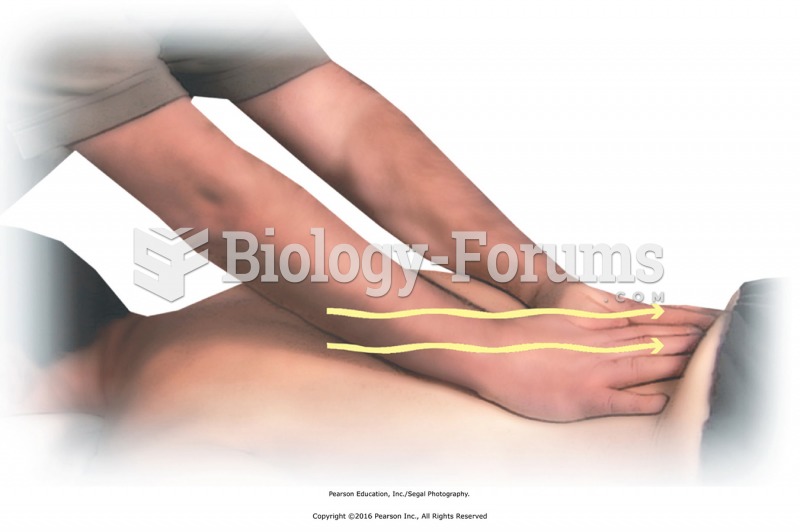|
|
|
Adults are resistant to the bacterium that causes Botulism. These bacteria thrive in honey – therefore, honey should never be given to infants since their immune systems are not yet resistant.
According to the American College of Allergy, Asthma & Immunology, more than 50 million Americans have some kind of food allergy. Food allergies affect between 4 and 6% of children, and 4% of adults, according to the CDC. The most common food allergies include shellfish, peanuts, walnuts, fish, eggs, milk, and soy.
Signs and symptoms of a drug overdose include losing consciousness, fever or sweating, breathing problems, abnormal pulse, and changes in skin color.
Human neurons are so small that they require a microscope in order to be seen. However, some neurons can be up to 3 feet long, such as those that extend from the spinal cord to the toes.
Prostaglandins were first isolated from human semen in Sweden in the 1930s. They were so named because the researcher thought that they came from the prostate gland. In fact, prostaglandins exist and are synthesized in almost every cell of the body.
 Utagawa Hiroshige, Hamamatsu: Winter Scene, plate 30 from The Fifty-Three Stations of the Tokaido, ...
Utagawa Hiroshige, Hamamatsu: Winter Scene, plate 30 from The Fifty-Three Stations of the Tokaido, ...
 Using your fingertips at the edge of the eye orbit, apply L stroke down to chin and back toward the ...
Using your fingertips at the edge of the eye orbit, apply L stroke down to chin and back toward the ...




